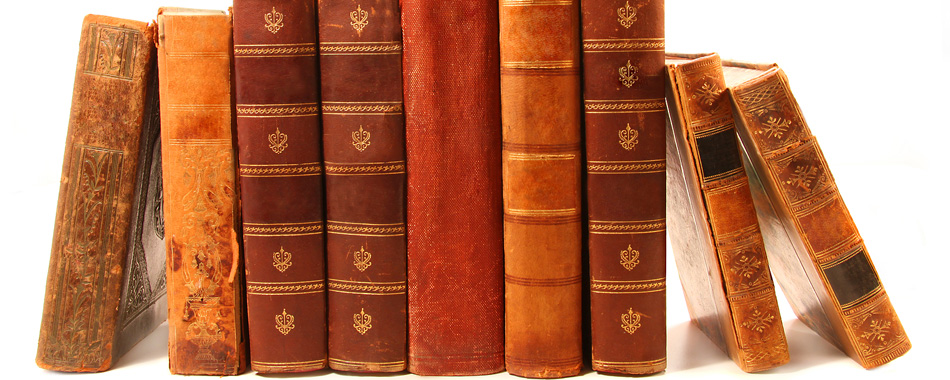Our rare book specialist has been in the business for 50 years; buying, selling and advising collectors and institutions worldwide in every field from incunabula to modern first editions. We hold an extensive reference library containing bibliographies of all the major writers and subjects.
For centuries collectors have indulged their passion for book collecting in the formation of collections described by some as old books, rare books, antiquarian books, modern first editions, contemporary first editions, author and subject collections as well as collections of manuscripts, autographed letters, fine and decorative bindings, printed ephemera, maps and prints. Many of these collections have formed the basis, or important additions to, institutional libraries across the world. Others have been dispersed for newer collectors to invest in and expand upon.
The invention of moveable type by Johannes Gutenberg in the 15th century, paved the way for books and pamphlets to move on from solely religious topics. Early texts on the law by Francis Bacon, Sir Edward Coke and John Fortescue. Medical and scientific experimentation and observation by Nicolaus Copernicus, William Harvey, Robert Boyle, Thomas Elyot, Gabriele Fallopio, and Isaac Newton. Prose, poetry, politics, cookery, war, drama, scurrilous tracts and philosophy. Names we recognise today were already in print: Shakespeare, John Milton, John Locke and Sir Walter Raleigh, Abraham Cowley, Andrew Marvell and Samuel Butler.
17th century advancement in book production made possible the rapid dispersion of knowledge and ideas. The age of enlightenment was a cultural movement whose object was to reform society and advance knowledge. Prime movers included Locke, Spinoza, Voltaire, Denis Diderot, Jean-Jacques Rousseau, Montesquieu, Francis Hutcheson, David Hume, Adam Smith, Immanuel Kant and Thomas Paine.
The 18th century saw the advent of the novel as we recognise it today by authors like Samuel Richardson, Henry Fielding, Laurence Stern, Oliver Goldsmith and women novelists like Fanny Burney. One must not forget such luminaries as Horace Walpole and Samuel Johnson along with James Boswell. The French were pre-eminent in the production of the “saucy novel” and drama flourished with Richard Brinsley Sheridan and David Garrick. Books on travel were published as travelers like James Cook extended their voyages of discovery into the new world.
The turn of the century saw the emerging romantic movement and the work of Wordsworth, Coleridge, Shelley, Keats, Blake, Byron and John Clare. Major novelists also made their names: Scott, Dickens, Trollope, Collins, Jane Austen, the Bronte sisters, Mary Braddon and George Eliot.
Finally the 20th century saw the emergence of the modern first edition with the likes of Ian Fleming, J.R.R. Tolkien, H.G Wells and J.K.Rowling.

